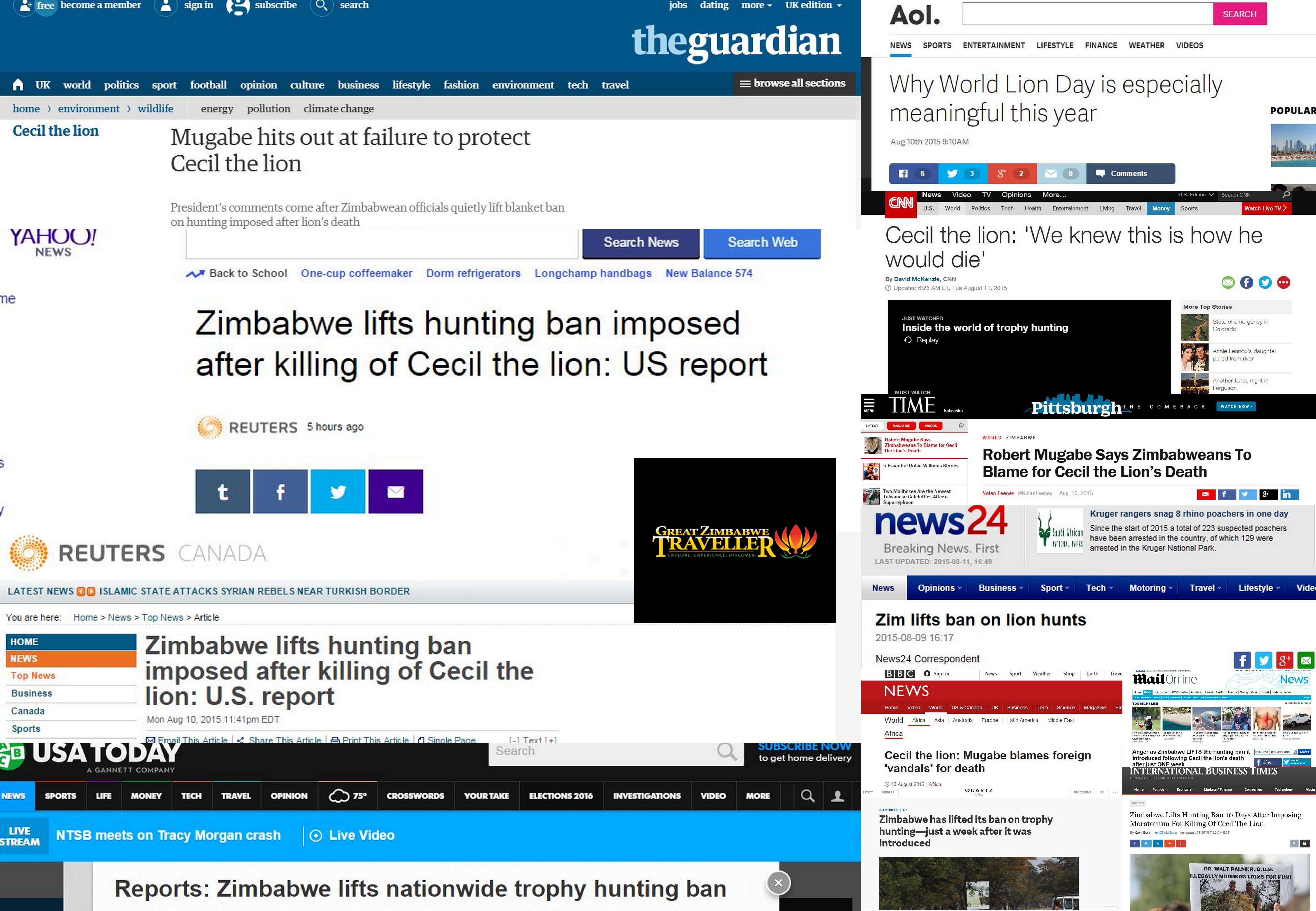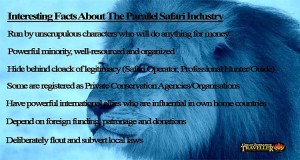August 10 was World Lion Day and there is still no justice for Cecil. Authorities have bowed under pressure to lift the ban, a move that could create problems for a nation desperate to revamp its image before the world.
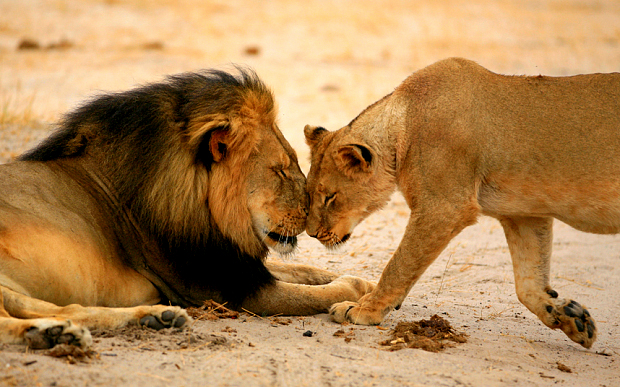
Cecil and one of his lionesses in an intimate moment at Linkwasha Camp. Picture Credit: Brent Stapelkamp
What a disappointment! August 10 was World Lion Day and while the rest of the world celebrated our Zimbabwean shumba, Cecil The Lion, local “relevant authorities” spit on his legacy by lifting a week old temporary ban on hunting due to pressure from “mysterious” stakeholders within the safari industry. The decision missed overwhelming global sentiments, something that could have serious ramifications for a struggling domestic tourism industry and a nation desperate to revamp its unfavourable reputation and image in the eyes of the world.
Still No Justice
Six weeks on, there is still no justice and no prosecution for the “Illegal killing” of Cecil. It’s three weeks since the story hit mainstream media and became a global sensation and there is no sign the trend will stop. Global outrage and anger over the brutality of the incident has not abated and does not appear to be, at least it seems, until all the collaborators are behind bars.
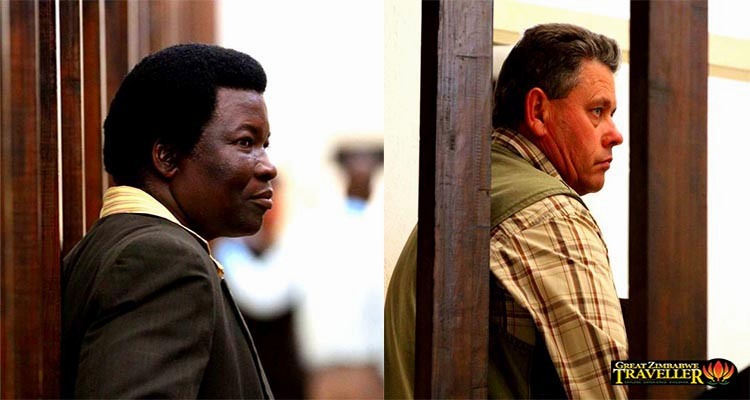
Co-accused Honest Ndlovu (Farmer, Privater Landowner) and Theo Bronkhorst (Safari Operator, Professional Hunter) Picture Credit: REUTERS
The attention on Zimbabwe has not shifted and is unlikely to do so, mainly due to the unique nature of the story and global interest in the outcome of the impending case. Until justice for Cecil is rendered, Zimbabwe and the hunting industry should brace themselves to be the focus of unwanted global attention for a while longer.
Not Business As Usual
Zimbabwean authorities and the local safari industry cannot simply wish away or “ignore the noise” in the hopes that it abates and dissipates. As long as there is continued media appetite and coverage of the story, it won’t be business as usual for the local tourism industry or those involved in the promotion and marketing of the country until some form of justice is rendered. Anyone who thinks otherwise is out of touch with reality.
The interest in the case inadvertently magnifies the unwanted attention on the activities of the hunting industry in particular, and the nation at large.
While Zimbabwe is a very beautiful country and relatively peaceful, it cannot survive in isolation. Tourism is an integral part of the economy and foreign dollars contribute immensely towards employment, conservation including sustainable development of local communities among other things. Hence the reason to forget political rhetoric emanating from both Harare and Washington. Americans account for the majority of tourists visiting Zimbabwe and ironically, they happen to be the most impacted by this brutal incident.
It would be a huge mistake for local authorities to underestimate or dismiss the power of the underground social media activism in that country, especially one backed by celebrities with millions of followers. It only takes 140 characters, post and then share to bring the nation’s struggling and volatile tourism industry to its knees.
Zimbabwe should care enough to ensure that an appropriate finality that ends in prosecutions is achieved. Any outcome less than that would be tantamount to committing economic suicide.
Eyes On Zimbabwe: Justice For Cecil
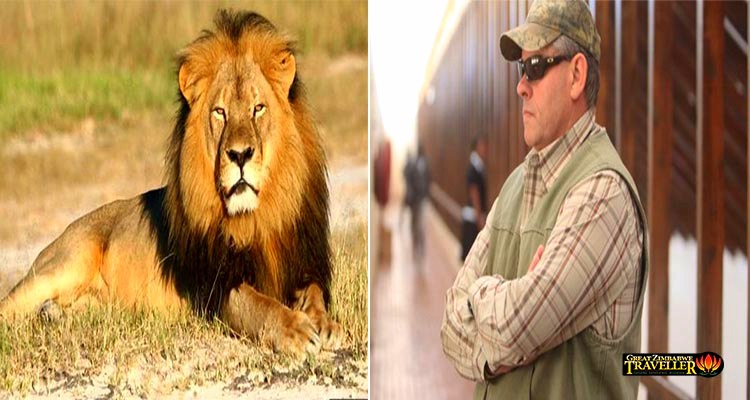
Cecil The Lion and Theo Bronkhorst, the man who literally hand delivered Cecil to the gruesome and brutal slaughter. Picture Credit: AP/Andy Loveridge, Tsvangirai Mukwazhi
While the magnified eyes of the world are on Zimbabwe, watching and waiting, it is how local officials handle this that is paramount. It could be a defining moment for a country that has suffered tremendously under an unfavourable global reputation and image. For a highly publicized case such as this, every word matters and so is every action or inaction.
This is not the time for local authorities to be sending wrong signals. Zimbabwean authorities need to abandon the culture of inactivity, of not doing enough or of not doing the right thing. Caving in to pressure to remove a temporary hunting ban barely a week after imposition and without thinking of the consequences is not just reflective of an epic failure of irresponsible leadership; it is a huge embarrassment, a disgrace and a step backwards that reflects badly on Zimbabweans all over the world. It sends a wrong message, that Cecil’s life and that of other animals brutally slaughtered illegally do not matter; that money and profit do.
Zimbabwe needs to prosecute and imprison every individual who engages in illicit hunting activities to serve as deterrent to would-be perpetrators of similar crimes, not excluding legitimate operators caught in the act. The clear message of deterrence becomes even more imperative and relevant when dealing with cases such as this. They involve well-planned, well-organized and well-financed illegal operations by unscrupulous individuals hiding under the cloak of legitimacy, individuals who think they can subvert local laws and get away with it.
It is high time local authorities put their acts together and clean up this mess which is pushing the country deeper into the eye of a rather unusual storm.
Parallel Industry, Dodgy Safari Operators and Foreign Money
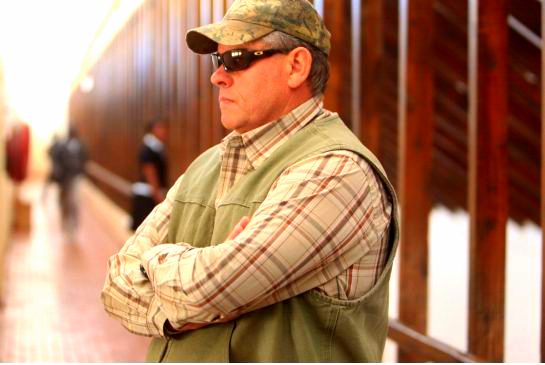
Theo Bronkhorst, Safari Operator and Professional Hunter who arranged the “illegal hunt” stands arrogantly proud, unapologetic, unremorseful and does not regret delivering Cecil to his death. Photo Credit: AP
The involvement of a registered Safari operator in Cecil’s tragic demise has exposed the illegal activities endemic within the Safari industry. It has brought to the forefront questionable dodgy behaviours of some within the regulated industry in Zimbabwe, South Africa and other nations.
The country has for decades, struggled unsuccessfully with a problem of an organized, very powerful, well-resourced, highly-effective foreign-funded parallel safari industry that operates in hindsight and very often, in contravention of local laws. This industry is comprised of a fringe minority who resent government, disregard local laws and are a power and law unto themselves. They subvert and deliberately violate rules and regulations governing the industry.
Within this sophisticated, well-organized, well-financed underground operations are some registered Safari Operators. They own huge tracts of land and run private (hunting) safari operations often outside government prescribed norms. They charge exorbitant rates which they pocket and is often unreported. They externalize funds with little or nothing being channeled back to local communities and whose resources are being used to support the burgeoning industry.
These individuals have powerful global allies who are influential in their countries (businessmen, politicians, notables). In instances where quotas for desired Big Game aren’t available, these operators often subvert laws, take advantage of regulatory loopholes and lure animals (case of Cecil) from protected areas on to private-owned land where they are killed.
These are the Theo Bronkhorsts, the Safari Operators who hide behind the legitimacy of local and international Safari memberships and associations while engaging in illicit activities. They meticulously plan well-financed “illegal hunts”, organize the “bait” used to lure the animal and then, choose the appropriate time to embark on the excursion to avoid detection.
Like the unapologetic, unrepentant Bronkhorst, these unscrupulous characters don’t care about the reputation of the noble industry, host country or the indirect consequences of their actions. They are selfish, arrogant and unremorseful. They only think of themselves and their profits.
Dodgy Safari Operators like this man and his ilk need to be exposed, expunged and ostracized from all local and international associations and organizations whose survival are now at stake, courtesy of their careless illegal activities. Prosecuting and locking up Theo Bronkhorst and his accomplices won’t bring Cecil back but it would be the appropriate thing to do.
Much Bigger Than Cecil and Zimbabwe
Cecil’s slaughter has reverberated beyond the borders of Zimbabwe and has magnified the brutalities of poaching and illegal hunting confronting smaller countries. This often leaves local Park authorities and Rangers who are underfunded, poorly resourced and ill-equipped in vulnerable positions. Underpaid, over-worked and without adequate resources, they are prone to manipulation and easily corrupted as they seek assistance from unscrupulous operators.
If Zimbabwe is to restore its reputation as a reliable, trusted safari provider and client, it needs to weed out these undesirable elements and their operations. It won’t happen over night but it is a first step. Hunting is integral to the local tourism industry and cutting off the poisonous cancer is the only sensible action required to protect and preserve the rest of the industry.
The local safari industry together with government officials need to realize that the world is now a global village. What happens in one corner of the world no matter how minuscule, can have reverberating impact on the other side. This is the Cecil effect.
The fundamental question Zimbabwean authorities and other international Safari organizations need to ask themselves is this, Is saving a few unscrupulous individuals worth destroying domestic tourism and the wider hunting industry?
If the answer is no, then do the right thing. Separate the rot from the rest and prosecute the perpetrators. What we would like to see emerge from this mess is a reformed, strictly regulated hunting industry with strict enforcement and monitoring mechanisms to avoid similar occurrences. In so doing, justice for Cecil will be rendered and the spotlight hovering over Zimbabwe and the hunting industry may eventually disappear as business returns to normal!
Ready to explore? Unleash the wanderlust in you! Explore, experience, discover Zimbabwe!
